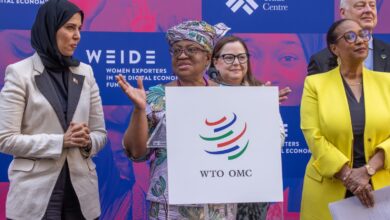Tinubu govt only favours those with Yoruba names – El-Rufai

Beijing has condemned the United States over a new executive order signed by President Donald Trump, which creates a blacklist of countries Washington accuses of wrongfully detaining American citizens.
The Chinese foreign ministry said on Monday that it “firmly opposes” the move, warning that it is another example of U.S. coercive diplomacy.
The order, signed by Trump on Friday, introduces the designation of “state sponsors of wrongful detention”, modeled after the longstanding U.S. system of labeling nations as state sponsors of terrorism.
Countries placed on this new list will face sanctions, strict export controls, and travel bans for officials linked to detentions.
Although the Trump administration has not yet published the official list, senior U.S. officials disclosed that China, Iran, and Afghanistan are under review.
They accused these nations of engaging in “hostage diplomacy” by detaining foreign nationals to gain political or diplomatic leverage.
One striking provision of the new policy would allow the State Department to bar U.S. citizens from traveling to designated countries, a rarely used measure in U.S. foreign policy.
Currently, only North Korea is subject to such a ban, a restriction imposed after the detention of American student Otto Warmbier, who died shortly after his release in 2017.
China, however, insists that it has no record of wrongful detentions. Foreign ministry spokesman Lin Jian dismissed Washington’s accusations, saying:
“China is a country governed by the rule of law, and there is absolutely no question of so-called wrongful detention.”
Lin went further, accusing the U.S. of hypocrisy:
“Wrongful detention, arbitrary detention, coercive diplomacy, long-arm jurisdiction, and unilateral sanctions are all the monopolies of the United States.
He added that China remains open to international engagement, stating:
“China, as always, welcomes citizens and enterprises from all countries to visit and conduct business.”
The issue of wrongful detention has long strained U.S.-China ties.
Under former President Joe Biden, Beijing released all Americans classified by Washington as wrongfully detained, in part after the U.S. softened its travel warnings on China.
That temporary diplomatic breakthrough now appears under threat as tensions rise again.
Analysts say Trump’s new order could harden U.S.-China relations at a time when both nations are already clashing over trade, security, and technology.
If China is officially blacklisted, the fallout could disrupt business travel, investment flows, and diplomatic exchanges.
For now, Beijing has made it clear that it views the blacklist as a hostile act. Washington, on the other hand, appears determined to expand its toolkit against governments accused of detaining Americans for political bargaining.
Post Views: 14





